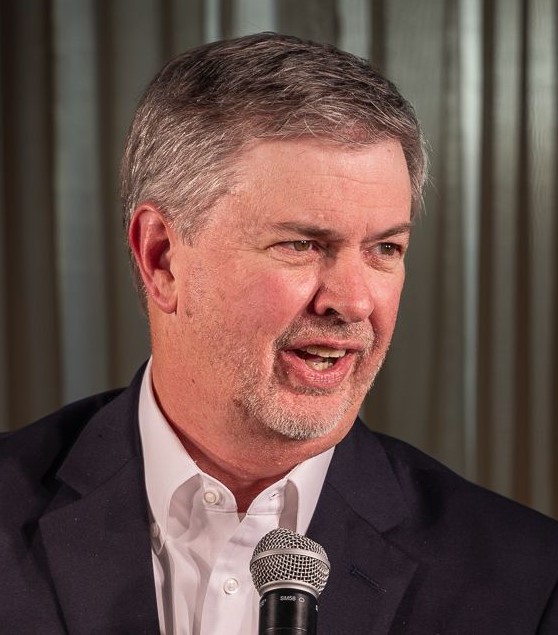I’m a newbie to the podcast world, just now understanding the value of these things—especially when traveling. Who knew that while on a plane, I can listen to great insight and ideas instead of working the Sudoku puzzle?
On a recent flight I jumped into The Andy Stanley Leadership Podcast and an interview with Jeff Henderson about Two Questions to Grow Your Business. If you don’t know Jeff Henderson, he wrote a book I’m about to read, Know What You’re FOR: A Growth Strategy for Work, An Even Better Strategy for Life. He’s got some great insights for all of us.
Sitting patiently in my seat (I’m a good boy on airplanes), Henderson and Stanley had me riveted. Because while they didn’t know it, they were talking about our pregnancy help community.
[Click here to subscribe to Pregnancy Help News!]
Yes, they were talking about businesses. But because both come from the non-profit sector (Stanley is senior pastor at Northpointe Church in Alpharetta, GA, where Henderson is a key member of the leadership team), they brought a perspective which we must embrace. Here’s an example:
Henderson’s advice to businesses is to remember that with all the advertising and marketing, most customers begin purchasing from a company because of word of mouth. Does this sound familiar?
A quote from Henderson captured me: “A business is no longer what it tells customers it is. A business is what customers tell other customers it is.” Why? Because of online reviews, social media posts, texting and messaging. In minutes, a company’s great service can go viral. On the flip side, when a company overlooks a customer, this goes viral, too.
The truth for us? We can, and should, market ourselves as the first choice for an unexpected pregnancy. But our most valuable advertising is when our customers—those who come in our door—tell their friends we made a difference in their lives.
Tweet This: Our most valuable advertising is when our customers—those who come in our door—tell their friends we made a difference in their lives.
First, Henderson challenges CEOs to know exactly what their company is selling. As a negative example, he mentions Burger King, working hard to market chicken sandwiches to its customers. When the fast food giant called in a consultant to its corporate offices to assist, the consultant took the team outside, pointed at the sign on the building and asked, “What does the sign say?”
In unison, the leadership team replied, “Burger King.”
The consultant turned to the team and said, “So why are you selling chicken sandwiches?”
Good point.
So, what is our “product?” Is it pregnancy tests? Ultrasounds? Medical care? Material support? Information on pregnancy options?
More to the point, how does our product differ from those who offer only abortion? They would tell customers they offer medical care, information—almost everything we provide.
May I offer a thought? I believe our product is “Hope.” Whether this word is in our names is not the point. What matters is that regardless of the situation, those who call on us need hope more than anything else.
Some need the hope that they can make it through an unexpected pregnancy. Others need the hope that while a pregnancy test was negative, in some facet of life, hope must make a comeback, and quickly.
That hope often comes from a revitalized faith, which we may offer as well.
When we “sell” hope, we separate ourselves from the abortion industry.
Tweet This: When we in the pregnancy help community offer hope, we separate ourselves from the abortion industry.
Second, Henderson asks, “What do we want to be known for?” In my experience, Southwest Airlines comes to mind. Southwest has no meals on long flights, no seat-backs with TVs, no First Class, no assigned seats. For these reasons it should be out of business.
But Southwest is known as a “fun” airline. Flight attendants crack jokes. Pilots do, too. The entire culture is that of a team pitching in and helping each other. You’ll see pilots cleaning up trash and gate agents switching flights around for stranded customers at no charge.
What do we want to be known for?
Though we want to provide all services our clients and patients need, we’ll not be known for “the best ultrasound in town” or “excellence in STI testing.”
And, while it is important that we present these services with professionalism, ultimately, we don’t want to be known for having the best policies and procedures.
We won’t be best known for informative parenting classes, well thought-out relationship education, our cool décor or our powerful ability to convey the truth of life.
Don’t get me wrong—all of these have value. They do.
But when a client walks out of our door, these won’t be foremost on her (or his) mind.
Perhaps they won’t be able to perfectly articulate it, but when the appointment is over, I think we want to be known for our love.
Because—to rework some words from a guy named Paul—we can have the best medical clinic with the most professional staff, but if we don’t have love, we get nowhere.
We can have perfect by-laws and a budget in the black each month, but if we don’t have love, we profit nothing.
We can teach the best classes, craft the best life-affirming arguments, distribute the most material goods and even work longer hours than all who oppose us. But if we don’t have love, we’re just another special interest group, bent on implementing our agenda.
Perhaps we need to be known for our love.
Because it seems that our faith allows us to bring incredible hope to those who call upon us. And as we reach out in love, we’ll have quite a thriving enterprise.
Tweet This: Our faith allows us to bring incredible hope to those who call upon us in the pregnancy help community
Andy Stanley and Jeff Henderson have another podcast coming this month. I think I’ll listen in. Because they’re speaking to me—and to all of us in the pregnancy help community.







